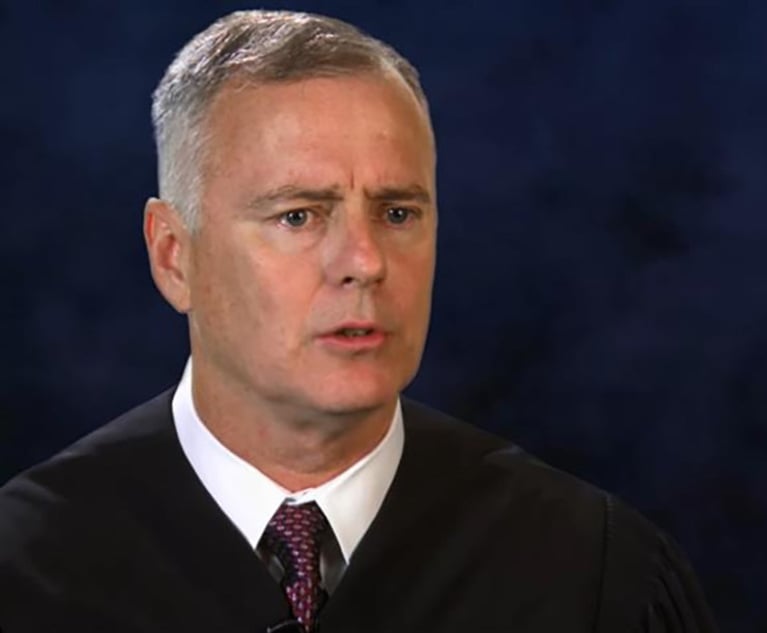Supreme Court Leaves As Many Questions As It Answers In 'Google v. Oracle'
The Court cleared Google of copyright infringement in terminating a 16-year long dispute as to whether Google's Android mobile platform had infringed Oracle's Java programming language's copyright. However, the Court did not answer the question of whether specific components of computer software qualifies for copyright protection at all.
May 27, 2021 at 04:55 PM
7 minute read
This article appeared in The Intellectual Property Strategist, an ALM/Law Journal Newsletters publication that provides a practical source of both business and litigation tactics in the fast-changing area of intellectual property law, including litigating IP rights, patent damages, venue and infringement issues, inter partes review, trademarks on social media – and more.
On April 5, 2021, the U.S. Supreme Court ended a copyright case that left as many questions as it gave answers, in Google LLC v. Oracle America, Inc., 141 S.Ct. 1183 (2021). In a lengthy decision, the Court cleared Google of copyright infringement in terminating a 16-year long dispute as to whether Google's Android mobile platform had infringed Oracle's Java programming language's copyright. A 6-2 panel (Justice Barrett did not participate) found in favor of Google, holding that its use the copied code constituted fair use. However, the Court did not answer the question of whether specific components of computer software qualifies for copyright protection at all.
|Google v. Oracle Factual Background
The dispute started in 2005 when Google first acquired Android, Inc. and its operating system for mobile devices. Shortly after acquiring Android, Google began talks with Sun Microsystems (now Oracle) to license the Java platform for new smartphone technology. At the time, Java was understood by many developers and as many as six million programmers had spent time learning and using Java. However, Sun insisted that Java programs be "interoperable," or able to be run on any device regardless of the underlying hardware. When Google and Sun could not reach an agreement on the interoperability of programs made for Android, negotiations broke down.
This content has been archived. It is available through our partners, LexisNexis® and Bloomberg Law.
To view this content, please continue to their sites.
Not a Lexis Subscriber?
Subscribe Now
Not a Bloomberg Law Subscriber?
Subscribe Now
NOT FOR REPRINT
© 2024 ALM Global, LLC, All Rights Reserved. Request academic re-use from www.copyright.com. All other uses, submit a request to [email protected]. For more information visit Asset & Logo Licensing.
You Might Like
View All
'You Can’t Do a First Draft of Common Sense': Microsoft GC Jon Palmer Talks AI, Litigation, and Leadership

Justices Seek Solicitor General's Views on Music Industry's Copyright Case Against ISP

SEC Targets Rising Crypto Financier in $115 Million Securities Fraud
3 minute read
Texas Court Invalidates SEC’s Dealer Rule, Siding with Crypto Advocates
3 minute readTrending Stories
Who Got The Work
Michael G. Bongiorno, Andrew Scott Dulberg and Elizabeth E. Driscoll from Wilmer Cutler Pickering Hale and Dorr have stepped in to represent Symbotic Inc., an A.I.-enabled technology platform that focuses on increasing supply chain efficiency, and other defendants in a pending shareholder derivative lawsuit. The case, filed Oct. 2 in Massachusetts District Court by the Brown Law Firm on behalf of Stephen Austen, accuses certain officers and directors of misleading investors in regard to Symbotic's potential for margin growth by failing to disclose that the company was not equipped to timely deploy its systems or manage expenses through project delays. The case, assigned to U.S. District Judge Nathaniel M. Gorton, is 1:24-cv-12522, Austen v. Cohen et al.
Who Got The Work
Edmund Polubinski and Marie Killmond of Davis Polk & Wardwell have entered appearances for data platform software development company MongoDB and other defendants in a pending shareholder derivative lawsuit. The action, filed Oct. 7 in New York Southern District Court by the Brown Law Firm, accuses the company's directors and/or officers of falsely expressing confidence in the company’s restructuring of its sales incentive plan and downplaying the severity of decreases in its upfront commitments. The case is 1:24-cv-07594, Roy v. Ittycheria et al.
Who Got The Work
Amy O. Bruchs and Kurt F. Ellison of Michael Best & Friedrich have entered appearances for Epic Systems Corp. in a pending employment discrimination lawsuit. The suit was filed Sept. 7 in Wisconsin Western District Court by Levine Eisberner LLC and Siri & Glimstad on behalf of a project manager who claims that he was wrongfully terminated after applying for a religious exemption to the defendant's COVID-19 vaccine mandate. The case, assigned to U.S. Magistrate Judge Anita Marie Boor, is 3:24-cv-00630, Secker, Nathan v. Epic Systems Corporation.
Who Got The Work
David X. Sullivan, Thomas J. Finn and Gregory A. Hall from McCarter & English have entered appearances for Sunrun Installation Services in a pending civil rights lawsuit. The complaint was filed Sept. 4 in Connecticut District Court by attorney Robert M. Berke on behalf of former employee George Edward Steins, who was arrested and charged with employing an unregistered home improvement salesperson. The complaint alleges that had Sunrun informed the Connecticut Department of Consumer Protection that the plaintiff's employment had ended in 2017 and that he no longer held Sunrun's home improvement contractor license, he would not have been hit with charges, which were dismissed in May 2024. The case, assigned to U.S. District Judge Jeffrey A. Meyer, is 3:24-cv-01423, Steins v. Sunrun, Inc. et al.
Who Got The Work
Greenberg Traurig shareholder Joshua L. Raskin has entered an appearance for boohoo.com UK Ltd. in a pending patent infringement lawsuit. The suit, filed Sept. 3 in Texas Eastern District Court by Rozier Hardt McDonough on behalf of Alto Dynamics, asserts five patents related to an online shopping platform. The case, assigned to U.S. District Judge Rodney Gilstrap, is 2:24-cv-00719, Alto Dynamics, LLC v. boohoo.com UK Limited.
Featured Firms
Law Offices of Gary Martin Hays & Associates, P.C.
(470) 294-1674
Law Offices of Mark E. Salomone
(857) 444-6468
Smith & Hassler
(713) 739-1250








